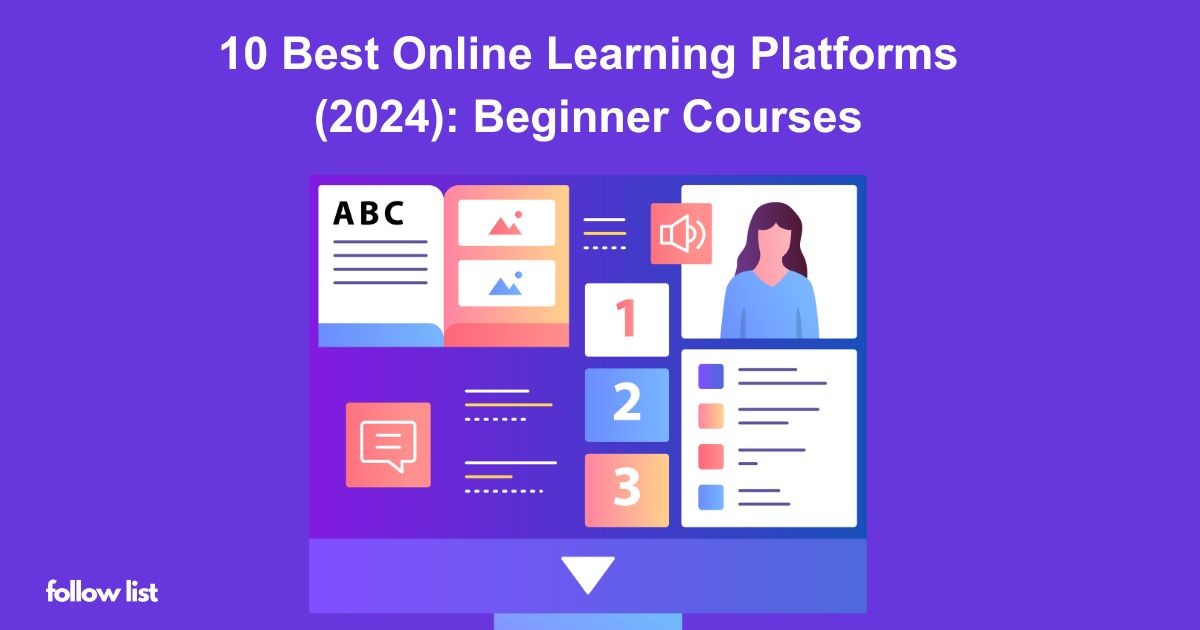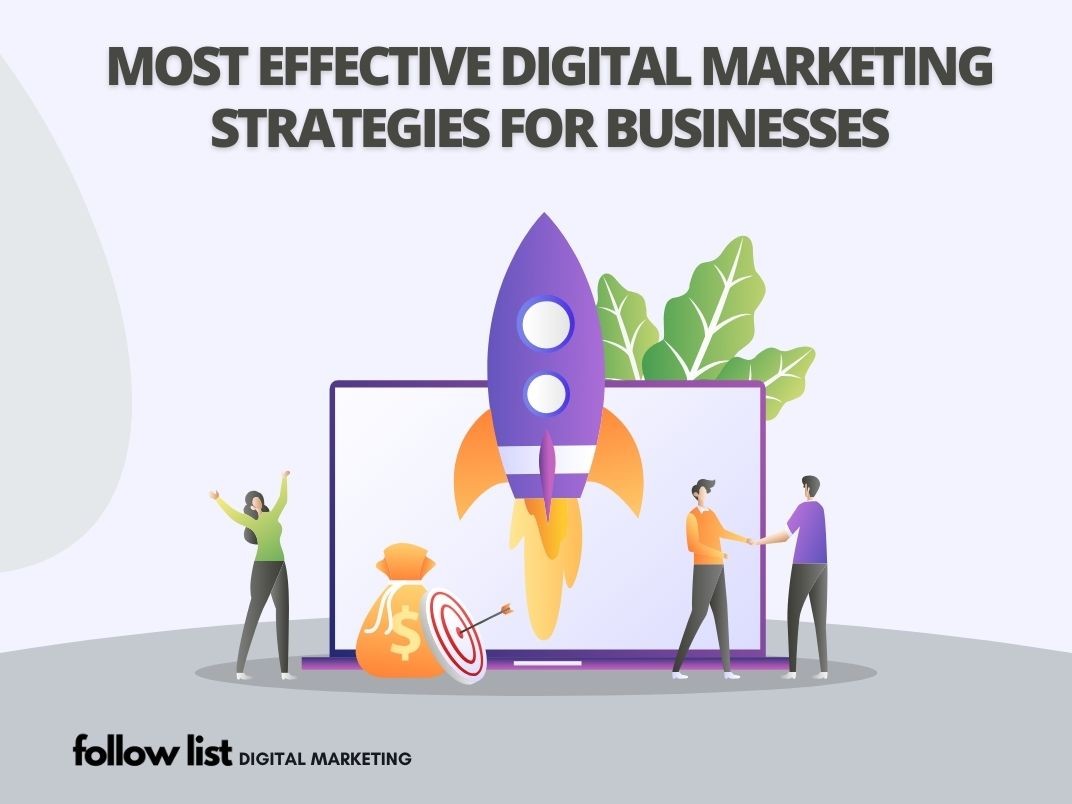
Table of Contents
Listen to this article
10 Best Online Learning Platforms (2024): Beginner Courses
In 2024, finding the right online learning platform is crucial for beginners looking to acquire new skills. The landscape of online education has evolved significantly, and several e-learning websites stand out as the best online course providers. These platforms offer high-quality beginner courses, to meet the needs of learners of all backgrounds.
A colorful chart of 10 different online learning platforms, each with its own unique logo and color scheme. The logos are arranged in a spiral pattern, with the largest logo in the center and the smaller logos radiating outwards. Rays of light emanate from each logo, symbolizing the knowledge and skills that can be gained from each platform.
Key Takeaways:
-
The best online learning platforms provide a wide range of beginner courses.
-
These platforms are recognized as top e-learning websites in the online education landscape.
-
They offer high-quality learning experiences and various features and tools for both learners and instructors.
-
Some of the best online learning platforms for beginners in 2024 include LearnWorlds, Coursera, Skillshare, Udemy, Docebo, Edx, Moodle, Teachable, and Thinkific.
-
Choosing the right online learning platform is essential for beginners to enhance their skills and achieve their learning goals.
Understanding Online Learning Platforms vs. Online Course Platforms
When it comes to online education, it's crucial to understand the difference between online learning platforms and online course platforms. While both serve the purpose of facilitating online learning experiences, they have different focuses and functionalities.
An online learning platform is an information system that provides a safe and user-friendly environment for students to take online courses. Often referred to as online course marketplaces, these platforms offer a wide range of courses across various subjects. Students can easily search for courses, enroll, and make payments directly on the platform. Online learning platforms prioritize the learner's perspective, offering a convenient and accessible way to acquire new knowledge and skills.
On the other hand, an online course platform functions as a learning management system (LMS) that allows instructors to create, host, deliver, and sell online courses. Instructors have complete control over the course content, structure, and administrative features. Online course platforms enable instructors to design engaging learning experiences tailored to their specific teaching styles and goals.
Both online learning platforms and online course platforms offer unique advantages and disadvantages:
Benefits of Online Learning Platforms:
-
Access to a vast library of courses across diverse subjects and disciplines
-
Flexible learning options, allowing students to learn at their own pace and convenience
-
Opportunities to interact with a diverse community of learners from around the world
-
Convenient payment options and secure transactions
-
Flexible timings and downloading options
Advantages of Online Course Platforms:
-
Complete control for instructors to design, deliver, and monetize their courses
-
Customizable features and branding options to create a unique learning experience
-
Advanced analytics and reporting tools to track student progress and engagement
-
Possibility for instructors to build their brand and establish themselves as industry experts
Ultimately, the choice between an online learning platform and an online course platform depends on individual needs, whether you're a learner seeking a wide range of courses or an instructor looking to create, deliver, and sell your own courses. Understanding the differences and benefits of each platform type ensures that you make an informed decision in your online learning journey.
Best Online Learning Platforms for Students
When it comes to online learning platforms for students, there are several top options available. These platforms provide a wide range of courses in various subjects and are known for their high-quality content. Whether you're looking to enhance your skills, explore new interests, or earn certifications, these platforms have got you covered.
-
Coursera: Coursera partners with top universities to provide university-level education to students around the world. Their extensive catalog of courses covers a wide range of topics.
-
Udemy: Udemy is known for its vast library of courses created by instructors from all over the globe. It offers courses for all levels, from beginner to advanced.
-
LinkedIn Learning: LinkedIn Learning, formerly known as Lynda.com, specializes in professional courses and certifications. It offers courses in business, technology, creative skills, and more.
-
Skillshare: Skillshare is a popular platform that focuses on creative skills and offers thousands of classes taught by industry professionals. From photography to graphic design, there's something for everyone.
-
edX: edX is another platform that partners with prestigious universities to offer high-quality courses. They provide university-level education across various disciplines.
-
Khan Academy: Khan Academy focuses on K-12 education and offers a vast array of courses for students of all ages. It covers subjects like math, science, history, and more.
These platforms provide flexibility, accessibility, and options for both free and paid courses. Whether you're a student looking to expand your knowledge or someone seeking professional development, these online learning platforms are sure to meet your needs.
Best Online Learning Platforms for Instructors
When it comes to the best online learning platforms for instructors, Teachable, Thinkific, and LearnWorlds are at the top of the list. These platforms provide a comprehensive set of tools and features that enable instructors to create, host, and sell their own online courses with ease.
Teachable is known for its powerful eCommerce features, making it an ideal choice for entrepreneurs, course creators, and small and medium-sized enterprises (SMEs). With Teachable, instructors can build a fully customizable course website, accept payments, and manage their courses effectively. The platform also offers robust analytics to track student progress and engagement.
Thinkific, on the other hand, is a flexible online learning platform that offers free course creation and a wide range of customization options. It provides a user-friendly interface and excellent customer support to assist course creators at every step of the process. Thinkific also supports various multimedia formats, allowing instructors to deliver engaging and interactive content.
LearnWorlds is another popular choice among instructors looking for an all-in-one solution. Trusted by thousands of customers worldwide, LearnWorlds offers comprehensive eCommerce features, course authoring capabilities, analytics, and website-building tools. Instructors can create impactful and interactive courses using the platform's advanced features and templates.
With these online learning platforms at your disposal, instructors can easily monetize their expertise and reach a global audience. Whether you are an experienced instructor or just starting out, Teachable, Thinkific, and LearnWorlds provide the necessary tools and support to create and sell high-quality online courses.
Now that we have explored the best online learning platforms for instructors, let's delve into the comparison between online learning platforms and learning management systems (LMS).
Online Learning Platforms vs. Learning Management Systems
Online learning platforms and learning management systems (LMS) are often mistakenly used interchangeably. While both types of platforms serve educational purposes, they cater to different audiences and have distinct functionalities.
Online learning platforms are designed to prioritize the needs of learners. They typically offer course marketplaces where individuals can access a wide range of online courses. These platforms provide a user-friendly interface and aim to create an engaging learning experience for students.
Learning management systems (LMS), on the other hand, are comprehensive software solutions used by enterprises and academic institutions for teaching and training purposes. LMSs go beyond course marketplaces and offer a more sophisticated set of tools and features.
While online course platforms can fall under either category, they primarily serve as tools for instructors to create, host, and sell online courses. These platforms provide instructors with the flexibility to customize and control the learning experience.
-
Online learning platforms emphasize the learner's perspective
-
Course platforms allow instructors to create their own course marketplace
-
LMSs are used by enterprises and academic institutions
Online learning platforms focus on providing learners with a wide variety of courses and a seamless user experience. Learners can explore course options, choose their desired subjects or skills, and access courses directly on the platform.
Course platforms, on the other hand, empower instructors to create and monetize their own courses. Instructors have more control over branding, pricing, and user data. They can build their own course marketplace and establish themselves as experts in their respective fields.
To sum up, online learning platforms offer learners a convenient way to access a diverse range of courses, whereas learning management systems are geared towards institutions and businesses that require a comprehensive solution for training and education purposes.
Choosing the Right Online Learning Platform
When it comes to selecting an online learning platform, there are several factors to consider that can help you make an informed decision. By evaluating these factors, you can ensure that the platform you choose aligns with your learning goals and provides a positive learning experience.
Course Structure
One important factor to consider is the course structure offered by the platform. Look for platforms that provide flexibility in terms of course duration and learning pace. Progressive learning experiences, such as the ability to unlock different modules or levels as you progress, can also contribute to a more engaging learning journey.
Course Content
Evaluate the available course content on the platform and ensure it covers the topics and subjects that are relevant to your learning goals. Take into account the depth and breadth of the course offerings, as well as the quality and credibility of the content creators. Look for platforms that offer a diverse range of courses across different disciplines.
Community Support
An online learning platform that fosters a sense of community can enhance your learning experience. Look for platforms that offer community support features, such as discussion boards or peer-to-peer interaction, where you can engage with fellow learners and instructors. This allows for collaborative learning and the opportunity to seek support and clarification when needed.
Pricing
Consider the pricing structure of the platform and ensure it aligns with the value provided. Some platforms offer free courses or provide options for both free and paid courses. It's important to assess whether the pricing is reasonable and fair in relation to the quality of the courses and the resources available on the platform.
Features and Tools
Take into account the features and tools offered by the platform. Look for options that align with your needs, such as marketing options to promote your own courses, integration with other channels, or analytics to track your progress. These additional features can contribute to a more comprehensive and efficient learning experience.
By considering these factors - course structure, course content, community support, pricing, and features and tools - you can choose the right online learning platform that suits your learning goals and preferences. Remember that each platform has its own strengths and weaknesses, so it's important to thoroughly evaluate your options before making a decision.
Conclusion
Online learning platforms have revolutionized education by providing accessible and flexible learning opportunities. The best online learning platforms offer a wide range of courses, specifically created for both students and instructors. Whether you're a beginner looking to acquire new skills or an instructor wanting to create and sell online courses, there are platforms available to meet your needs.
Consider factors such as course structure, content, community support, and pricing when choosing the right platform for your online learning journey. Look for platforms that offer flexible and progressive learning experiences, ensuring that the course content aligns with your learning goals. Community support, such as discussion boards or peer-to-peer interaction, can enhance your learning experience and provide valuable networking opportunities.
Moreover, pricing should match the value provided by the platform, and it's essential to evaluate the available features and tools offered. Whether you're seeking personal enrichment or professional development, utilize the power of online education to help you enhance your skills and stay competitive in today's rapidly evolving world. Explore the best online learning platforms and shine on your learning journey today!





